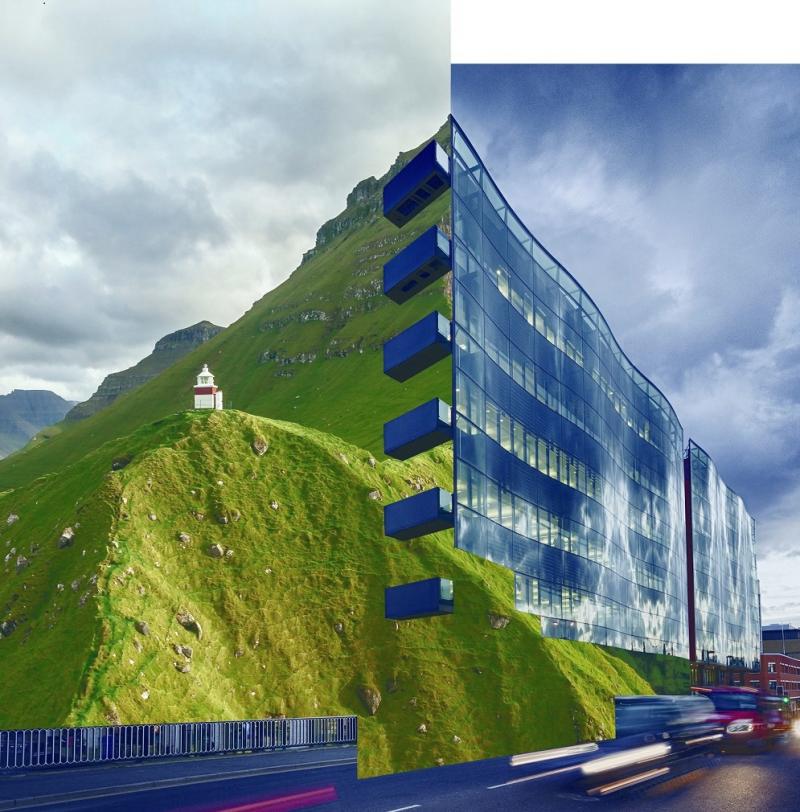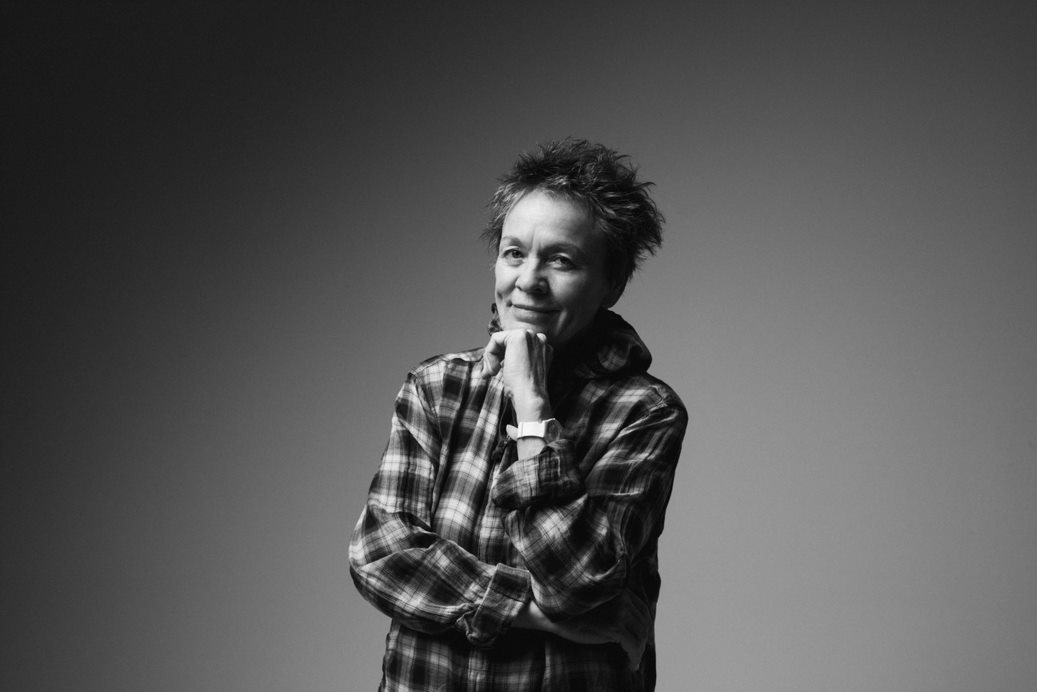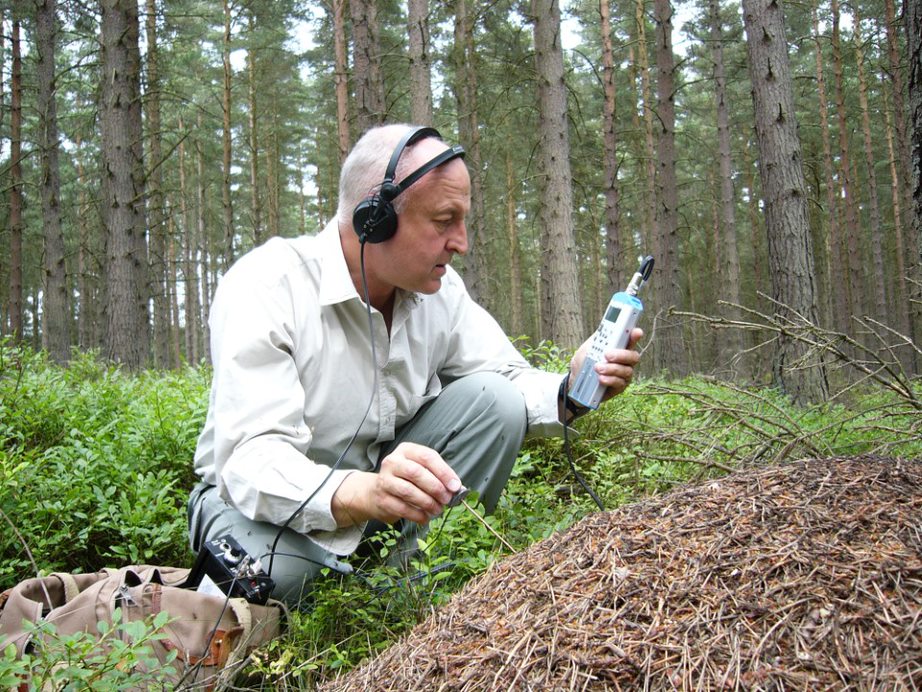Planting seeds for change: Helen Wallace on a year of seminal events at Kings Place | reviews, news & interviews
Planting seeds for change: Helen Wallace on a year of seminal events at Kings Place
Planting seeds for change: Helen Wallace on a year of seminal events at Kings Place
Women composers to the fore in the innovative arts centre's 'Nature Unwrapped'

When I mention Nature Unwrapped, a year-long series at Kings Place subtitled "Sounds of Life", the responses are often tinged with cynicism: "Oh, very 2020", "So, what’s the carbon footprint with all those musicians flying in?" There’s an assumption that the series is focused solely on climate change and c
So women will be providing important strands of music for Nature Unwrapped, some reflecting a sense of jeopardy, others in celebration. The magnificent Laurie Anderson’s response to the most dangerous Atlantic hurricane ever to hit the east coast of America, All the things I lost in the flood, is a powerful defence of the imagination over the material (the composer pictured below by Ebru Yildiz). Liza Lim’s Extinction Events and Dawn Chorus includes the sound of the now extinct Kauai O’o bird; Mica Levi revels in the sensuousness of Slow Dark Green Murky Waterfall, Mira Calix interweaves her music with that of live insects in Nunu, Hollie Harding explores the sounds of our rising, heating oceans in At the tide’s reach, Sarah Nicolls’ 12 Years confronts us with the planet’s urgent deadline, while Gubaidulina’s dazzling The Canticle of the Sun celebrates the spiritual mysteries of nature.  Another source of Nature Unwrapped was literary: was it the combination of the traumatic speed of the industrial revolution in Britain, and its island confinement - where each wild acre was threatened and therefore cherished - that spawned generations of nature writers? This rich tradition stretches from John Clare, Gilbert White, William Wordsworth, Gerard Manley Hopkins to Ted Hughes, Richard Mabey, Alice Oswald, Robert Macfarlane and Helen Macdonald, writers who train their patient gaze long and deep into the minutae of the living world. Britain is, after all, the nation that spawned Charles Darwin and Alfred Russel Wallace, men who recognised the importance of the lowly earthworm – and whose unofficial President is surely Sir David Attenborough.
Another source of Nature Unwrapped was literary: was it the combination of the traumatic speed of the industrial revolution in Britain, and its island confinement - where each wild acre was threatened and therefore cherished - that spawned generations of nature writers? This rich tradition stretches from John Clare, Gilbert White, William Wordsworth, Gerard Manley Hopkins to Ted Hughes, Richard Mabey, Alice Oswald, Robert Macfarlane and Helen Macdonald, writers who train their patient gaze long and deep into the minutae of the living world. Britain is, after all, the nation that spawned Charles Darwin and Alfred Russel Wallace, men who recognised the importance of the lowly earthworm – and whose unofficial President is surely Sir David Attenborough.
It was at a talk with Attenborough that I first encountered our Artist in Residence Chris Watson, sound recordist on many of his series and a composer and naturalist in his own right. Chris is one of earth’s great listeners. As he says, "sound is visceral, it connects to our hearts and imagination in a very direct way." His "sounds of life calendar", a collection of sonic environments reflecting the shifting seasons of the northern hemisphere, will frame each of our Unwrapped concerts. The overture to his opening event with George Monbiot (10 January) will be a chorus of wading birds on The Wash in Norfolk; Bach’s Peasant Cantata in April will be prefaced by the sound of curlew, red grouse and golden plovers across Northumbrian moorland, Anna Meredith’s Anno will be heralded by the bark of rutting deer and Mahler’s Ninth Symphony from the young Orchestra for the Earth will begin with seals singing in Svalbard. These teeming, strangely-scored symphonies speak of vibrant ecosystems we need to understand in order to protect (pictured below by Rosie Watson: Chris Watson recording wood ants in Northumberland).  Aside from a feast of colourful classical music, from Josquin, Vivaldi, Handel, Beethoven to Janáček, Crumb and Takemitsu, the deepest connection between music and nature was always going to be found in our folk programme. Songs and laments passed down from a rural way of life persist through the centuries, revived and renewed by musicians such as Karine Polwart, Martin Simpson, Liza Carthy, Nancy Kerr, LAU, Kitty Macfarlane, Peggy Seeger and Jimmy and Sid, all powerful witnesses to the politics of a changing landscape (Wild Singing – 13-15 March; Common Ground on 28 November). Lastly, we couldn’t complete the series without the unique music of Terje Isungset played on ice instruments: he brings with him singers from Greenland and Siberia, those in the frontline of a disappearing world.
Aside from a feast of colourful classical music, from Josquin, Vivaldi, Handel, Beethoven to Janáček, Crumb and Takemitsu, the deepest connection between music and nature was always going to be found in our folk programme. Songs and laments passed down from a rural way of life persist through the centuries, revived and renewed by musicians such as Karine Polwart, Martin Simpson, Liza Carthy, Nancy Kerr, LAU, Kitty Macfarlane, Peggy Seeger and Jimmy and Sid, all powerful witnesses to the politics of a changing landscape (Wild Singing – 13-15 March; Common Ground on 28 November). Lastly, we couldn’t complete the series without the unique music of Terje Isungset played on ice instruments: he brings with him singers from Greenland and Siberia, those in the frontline of a disappearing world.
So, the question remains, what’s the carbon footprint of Nature Unwrapped? I can’t pretend it’s neutral, but only a handful of artists will be ‘flying in’ specifically for performances here, the majority being UK-based or a Eurostar’s journey away. 100% of Kings Place’s electricity comes from renewable sources, we have just installed LED lights in the main hall and are working with our catering company to eliminate single-use plastics. Unseen is our green roof, with solar panels, bat and bird boxes, bug hotels and carpets of stonewort. There’s so much more to be done, but this year of programming has planted seeds which I hope will grow into permanent changes.
Helen Wallace, former classical music and opera critic on theartsdesk, is programme director at Kings Place
Explore topics
Share this article
The future of Arts Journalism
You can stop theartsdesk.com closing!
We urgently need financing to survive. Our fundraising drive has thus far raised £49,000 but we need to reach £100,000 or we will be forced to close. Please contribute here: https://gofund.me/c3f6033d
And if you can forward this information to anyone who might assist, we’d be grateful.

Subscribe to theartsdesk.com
Thank you for continuing to read our work on theartsdesk.com. For unlimited access to every article in its entirety, including our archive of more than 15,000 pieces, we're asking for £5 per month or £40 per year. We feel it's a very good deal, and hope you do too.
To take a subscription now simply click here.
And if you're looking for that extra gift for a friend or family member, why not treat them to a theartsdesk.com gift subscription?
more Classical music
 Hallé John Adams festival, Bridgewater Hall / RNCM, Manchester review - standing ovations for today's music
From 1980 to 2025 with the West Coast’s pied piper and his eager following
Hallé John Adams festival, Bridgewater Hall / RNCM, Manchester review - standing ovations for today's music
From 1980 to 2025 with the West Coast’s pied piper and his eager following
 Kaploukhii, Greenwich Chamber Orchestra, Cutts, St James's Piccadilly review - promising young pianist
A robust and assertive Beethoven concerto suggests a player to follow
Kaploukhii, Greenwich Chamber Orchestra, Cutts, St James's Piccadilly review - promising young pianist
A robust and assertive Beethoven concerto suggests a player to follow
 Robin Holloway: Music's Odyssey review - lessons in composition
Broad and idiosyncratic survey of classical music is insightful but slightly indigestible
Robin Holloway: Music's Odyssey review - lessons in composition
Broad and idiosyncratic survey of classical music is insightful but slightly indigestible
 Classical CDs: Wolf-pelts, clowns and social realism
British ballet scores, 19th century cello works and contemporary piano etudes
Classical CDs: Wolf-pelts, clowns and social realism
British ballet scores, 19th century cello works and contemporary piano etudes
 Bizet in 150th anniversary year: rich and rare French offerings from Palazzetto Bru Zane
Specialists in French romantic music unveil a treasure trove both live and on disc
Bizet in 150th anniversary year: rich and rare French offerings from Palazzetto Bru Zane
Specialists in French romantic music unveil a treasure trove both live and on disc
 Scottish Chamber Orchestra, Ibragimova, Queen’s Hall, Edinburgh review - rarities, novelties and drumrolls
A pity the SCO didn't pick a better showcase for a shining guest artist
Scottish Chamber Orchestra, Ibragimova, Queen’s Hall, Edinburgh review - rarities, novelties and drumrolls
A pity the SCO didn't pick a better showcase for a shining guest artist
 Kilsby, Parkes, Sinfonia of London, Wilson, Barbican review - string things zing and sing in expert hands
British masterpieces for strings plus other-worldly tenor and horn - and a muscular rarity
Kilsby, Parkes, Sinfonia of London, Wilson, Barbican review - string things zing and sing in expert hands
British masterpieces for strings plus other-worldly tenor and horn - and a muscular rarity
 From Historical to Hip-Hop, Classically Black Music Festival, Kings Place review - a cluster of impressive stars for the future
From quasi-Mozartian elegance to the gritty humour of a kitchen inspection
From Historical to Hip-Hop, Classically Black Music Festival, Kings Place review - a cluster of impressive stars for the future
From quasi-Mozartian elegance to the gritty humour of a kitchen inspection
 Shibe, LSO, Adès, Barbican review - gaudy and glorious new music alongside serene Sibelius
Adès’s passion makes persuasive case for the music he loves, both new and old
Shibe, LSO, Adès, Barbican review - gaudy and glorious new music alongside serene Sibelius
Adès’s passion makes persuasive case for the music he loves, both new and old
 Anja Mittermüller, Richard Fu, Wigmore Hall review - a glorious hall debut
The Austrian mezzo shines - at the age of 22
Anja Mittermüller, Richard Fu, Wigmore Hall review - a glorious hall debut
The Austrian mezzo shines - at the age of 22
 First Person: clarinettist Oliver Pashley on the new horizons of The Hermes Experiment's latest album
Compositions by members of this unusual quartet feature for the first time
First Person: clarinettist Oliver Pashley on the new horizons of The Hermes Experiment's latest album
Compositions by members of this unusual quartet feature for the first time

Add comment